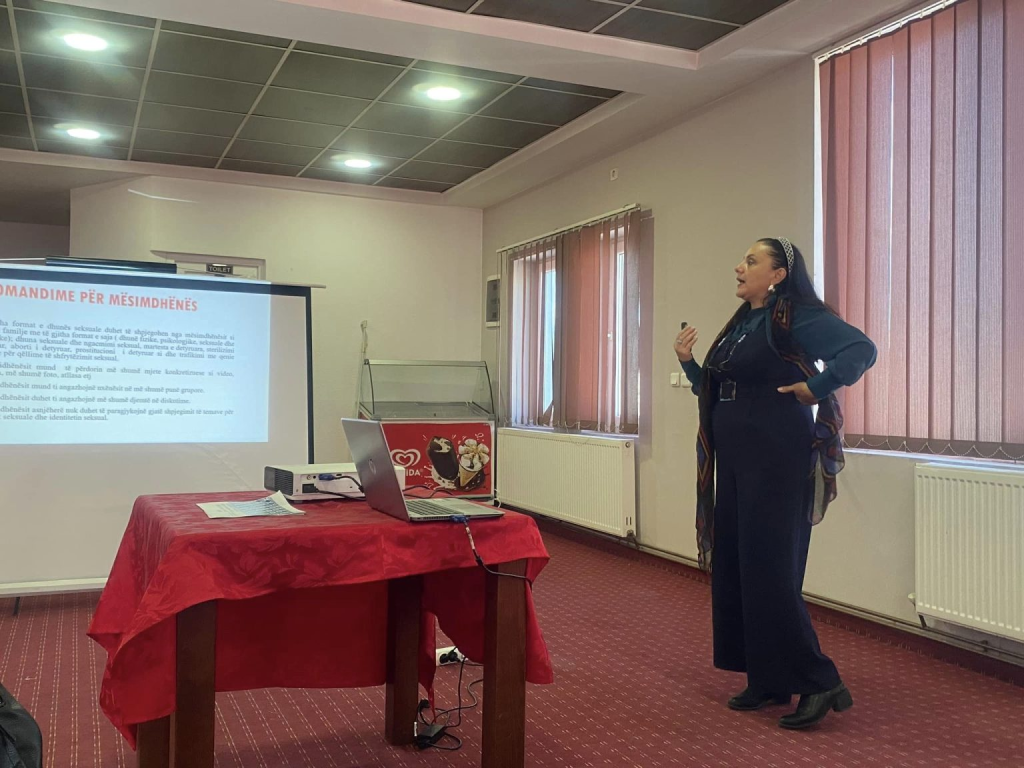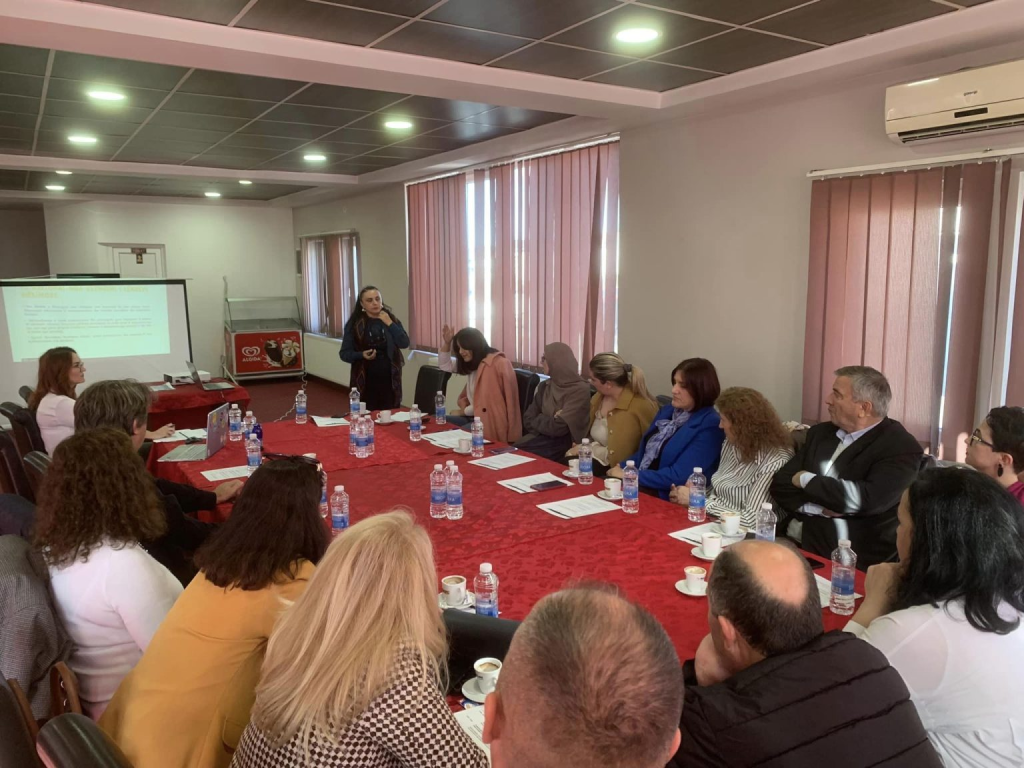The member organization of the Kosovo Women’s Network, Humanus Vita, hosted the closing session for the project ‘Inclusion of Sexual Education and Challenging Stereotypes Towards the Transformation of Gender Norms Through Education.’ This initiative was implemented in four primary schools within the Municipality of Drenas, focusing on the subject of Biology.
Through this project, the aim is to gain a deeper understanding of the taboos surrounding sex education. Additionally, it seeks to raise awareness among young people regarding their bodies, sexual orientation, and the importance of reducing instances of sexual harassment, sexual assaults, sexually transmitted diseases, and unwanted pregnancies.

Valentina Bejtullahu, a researcher, presented the findings of a four-month study. She stated that teachers agree on the inclusion of sexual education as a separate subject in the school curriculum. According to her, the least addressed topics are sexual violence and sexual harassment.
“The municipality of Drenas is renowned for the quality of education, particularly in comparison to other municipalities in Kosovo. In addition to teachers, students actively engage in biology lessons where topics related to sexual education are addressed. Debates with officials, whether with teachers or even school directors, are important to highlight the significance of explaining sexual education without social prejudices, using appropriate means of concretization, and giving more space to the treatment of these topics that impact a healthy life in young people,” she said, adding that ‘a challenge in dealing with these topics is the lack of specialized biological laboratories in the municipality of Drenas.

Doruntina Gashi, the project coordinator at Humanus Vita, stated that the project aims to illuminate the path toward a more conscious and equal society by raising the level of knowledge and awareness about the importance of sexual education. Gashi further added that sexual education in the country does not exist as a separate subject in the core curriculum but is instead included within the biology subject.
Meanwhile, the director of the ‘Ali Gashi’ school in Drenas, Antigona Gashi, reiterated that meetings like these, where research is presented regarding the inclusion of sexual education and challenging stereotypes towards the transformation of gender norms through education, are extremely important.
“Problems vary from school to school, so in groups, we can identify and share ideas on how to best support the students. Students are knowledgeable about sex education, but the best source of information is the school. It is not always possible to obtain accurate information from social networks. Today, we learned from the individuals present at this table that the website of the Ministry of Education contains materials that can be used during the explanation of a biology lesson on sex education,” she said.
Municipal officials, school principals, teachers, pedagogues, psychologists, members of civil society, and the media were part of the discussion.
Humanus Vita conducted this activity as a beneficiary of the 18th round of the Kosovo Women’s Fund, supported by the KWN’s Further Advancing Women’s Rights in Kosovo II,” financed by the Austrian Agency for Development (ADA) and co-financed by the Swedish International Development Cooperation Agency (Sida).







